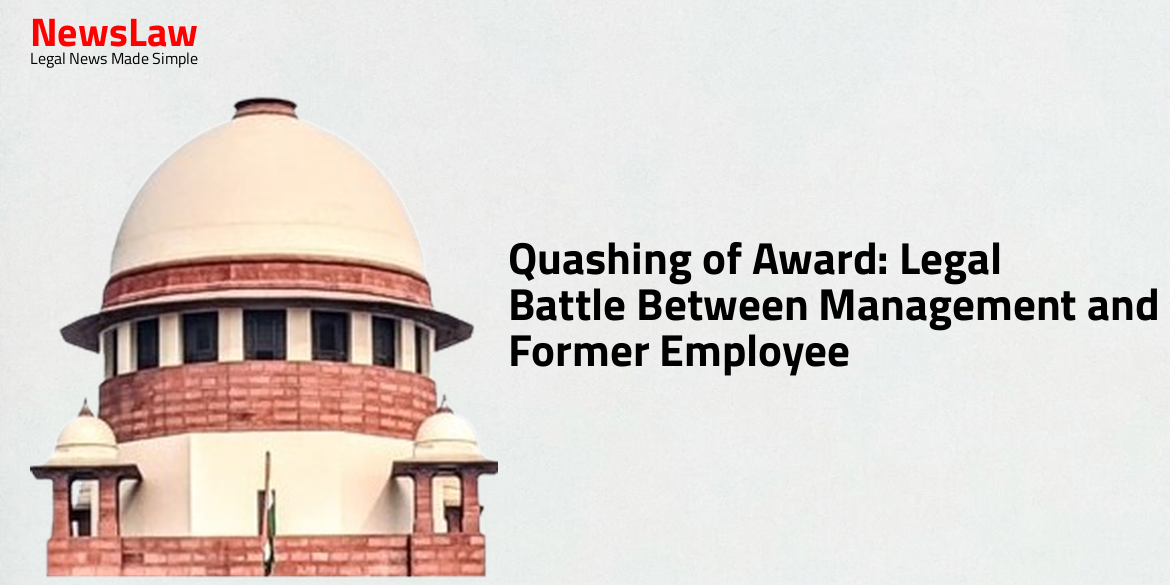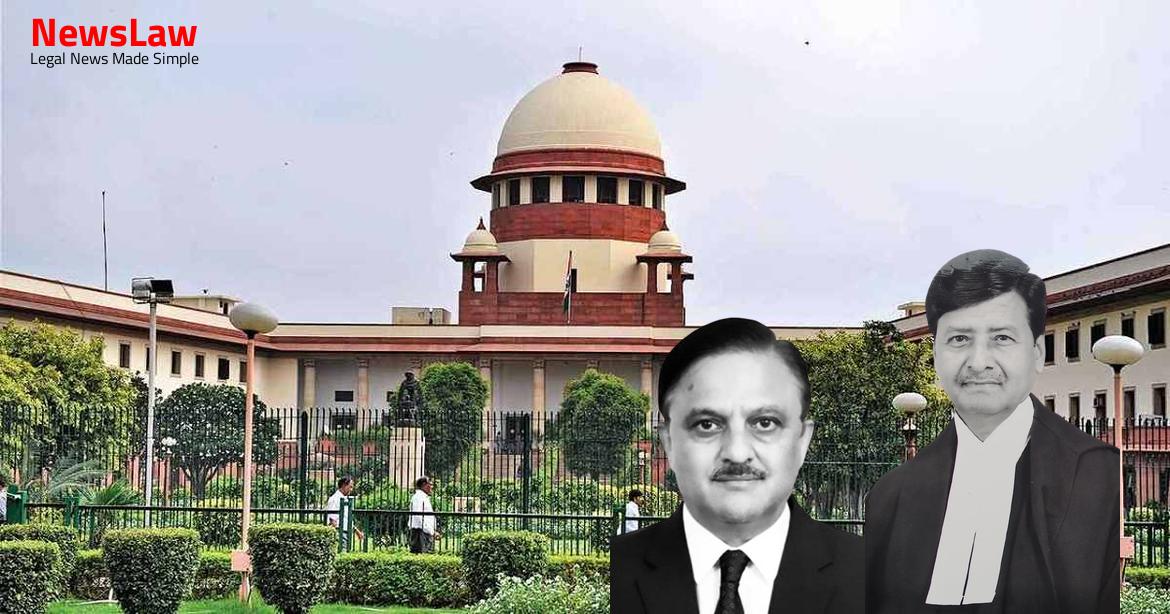In a significant legal development, the Delhi High Court recently issued a ruling in a case involving a management and a former employee. The verdict, focusing on the quashing of an award, delves into the complexities of labor disputes, particularly concerning illegal termination and abandonment of duties.
Facts
- The petitioner joined the organization as Sample Tailor in February 2002 with a last drawn salary of Rs. 4,107.
- The petitioner requested benefits like legal facilities, double overtime, and leave, which were denied by the management.
- On December 8, 2008, the petitioner was illegally terminated without notice or a domestic enquiry.
- The Labour Inspector’s report confirmed the petitioner was not reinstated and no settlement was reached.
- The petitioner filed a case to seek benefits through the Union, which was later transferred to the Labour Court.
- Despite pressure to withdraw the case, the petitioner sent a legal notice for illegal termination in December 2008.
- A complaint was filed before the Assistant Labour Commissioner, leading to earned wages being given but no reinstatement.
- A new industrial dispute for reinstatement was raised by the petitioner, leading to the current petition seeking to quash the award denying reinstatement.
Issue
- The main issue in question is whether the workman was terminated illegally and/or unjustifiably by the management.
- Another point of contention is whether the workman abandoned his duties starting from December 2008 by remaining absent without authorization.
Arguments
- The respondent management offered a meager settlement to the petitioner, indicating acknowledgment of wrongful behavior.
- The Labour Court overlooked crucial facts, including the respondent’s refusal to reinstate the petitioner and the lack of direct communication with the petitioner.
- Letters from the management were sent to the Union, not directly to the petitioner, impacting his ability to respond.
- The petitioner made efforts to communicate his situation but was not allowed to enter the company premises.
- The impugned award failed to recognize the illegal termination of the petitioner and the management’s role in preventing his return to work.
- The award was deemed arbitrary and in violation of the petitioner’s rights, warranting it to be set aside.
- The management denied providing jobs to all 22 workers, contradicting earlier statements.
- The Labour Inspector’s report highlighted salary payments to workers, indicating mismanagement by the respondent.
- The petitioner’s suffering goes beyond monetary loss, impacting his family’s well-being and opportunities.
- Violation of fundamental rights under the Constitution was cited as a basis for challenging the award.
- Inconsistencies in the Labour Inspector’s testimony raised doubts about the case’s handling over an extended period.
- Petitioner abandoned his services by remaining absent without authorization from duties
- Petitioner received all labor welfare benefits as per law during his employment
- Petitioner never complained about benefits or lack thereof to management or labor office
- Petitioner admitted to not having documents to prove overtime work
- Petitioner admitted to not instructing the Union to file a general demand case
- Management repeatedly called petitioner to rejoin duties after unauthorized absence
- Management warned of disciplinary action for failure to rejoin duties within specified time
Analysis
- Abandonment of service is an intentional or voluntary act of leaving employment permanently and completely.
- For abandonment to be established, there must be a clear intention on the part of the employee to not return to their services.
- Employer must give notice to the employee and conduct an enquiry before claiming abandonment of service.
- Mere allegation of abandonment is not sufficient, it must be proven with intent and action by the employee.
- Long absence from service without proper communication or valid reasons can be deemed as abandonment of service.
- A continuous absence for an extended period can amount to voluntary abandonment of service.
- Factual findings by a tribunal are generally final unless found to be perverse or based on no evidence.
- If an employee is absent beyond prescribed leave period, they may be considered to have resigned and ceased service.
- Illegal termination of service motivated by resisting the workman’s demand may amount to unfair labor practice.
- A workman illegally terminated is typically entitled to full back wages, except for periods of gainful employment during enforced idleness.
- The petitioner failed to provide evidence that he returned to work or that the management prevented him from doing so despite receiving letters from management.
- The evidence presented shows that the petitioner did not join back his duties after leave and remained absent for a long period of time.
- The claimant admitted to receiving various letters from management urging him to return to work after unauthorized absence.
- The claimant was offered the opportunity to resume work by the respondent management but failed to do so.
- The management had made sincere efforts to call the claimant to resume his duties, but he did not respond.
- The claimant’s name was still on the muster roll, indicating that his services were not terminated by the management.
- The claimant admitted to never filing a case of general demand against the management using the Union.
- The claimant was informed about the management’s shift to Manesar, Haryana, but lacked proof of joining his duties there.
- The claimant’s absence without authorization was considered misconduct, leading to the presumption of abandonment of services.
- The management had not terminated the services of the claimant and repeatedly requested him to resume work.
- The impugned award dated 7 September, 2018 passed by the Labour Court is upheld.
- The findings as recorded by the Labour Court are deemed legal and valid.
- The individual petitioners were found to have abandoned their services, and allegations of illegal termination were rejected.
- No propositions were presented by the petitioners to establish their case in the writ petitions.
Decision
- The impugned award in each of the connected petitions is upheld by the Court.
- The batch of petitions is dismissed.
- Any pending applications also stand dismissed.
Case Title: ASHOK KUMAR Vs. AT HOME INDIA PVT. LTD. AND ANR. (2024:DHC:3790)
Case Number: W.P.(C)-1570/2019



